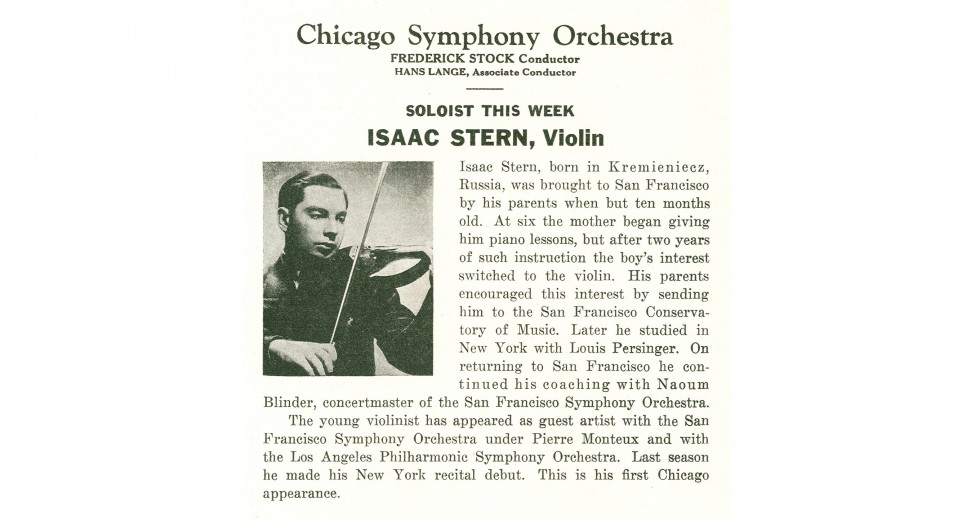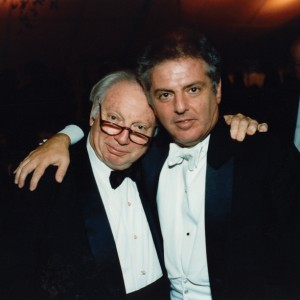
Nineteen-year-old Isaac Stern first appeared with the Chicago Symphony Orchestra on January 11 and 12, 1940. Frederick Stock conducted an all-Sibelius program, and Stern was soloist in the Violin Concerto.
According to the Chicago Daily News, “Dr. Frederick Stock had been invited to conduct the Sibelius concert with the Helsingfors Orchestra [arranged when Stock visited Sibelius in Finland the previous summer] as a special feature of the Olympic Games.* But Finland has had to abandon peacetime pursuits and now Isaac can thank the Russian regime for both his American citizenship and the chance to play the Sibelius D minor concerto with one of the world’s great orchestras.”
“True to the topsy-turvy condition of the world we live in, while the Finns are playing havoc with the Russians, at home a Russian-born violinist, young Isaac Stern, was the sensation of Mr. Stock’s memorable Sibelius concert at Orchestra Hall last night,” wrote Claudia Cassidy in the Journal of Commerce. “[Stern] has a commanding and comprehensive technique, a bold and beautiful tone never blatant and he has an urgent intensity of projection that seems to start in his firmly planted heels and flow like fire into the hands that make his music. . . . Stock’s accompaniment was brilliant in the perceptive richness that makes so many soloists prefer him to any other conductor.”

Isaac Stern and music director designate Daniel Barenboim after the Centennial Gala concert on October 6, 1990 (Jim Steere photo)
Over the course of the next fifty-two years, Stern was one of the Orchestra’s most frequent guests at Orchestra Hall, the Ravinia Festival, and at the Pabst Theater in Milwaukee, performing under six music directors (Stock, Rafael Kubelík, Fritz Reiner, Jean Martinon, Sir Georg Solti, and Daniel Barenboim) and a variety of guest conductors, including Fritz Busch, Andrew Davis, Carlo Maria Giulini, Otto Klemperer, Josef Krips, Pierre Monteux, Eugene Ormandy, Seiji Ozawa, and Leonard Slatkin. In 1986, Stern and Yo-Yo Ma recorded Brahms’s Concerto for Violin and Cello with Claudio Abbado for CBS.
*On July 16, 1938, a year after the outbreak of the Second Sino-Japanese War, it was announced that the 1940 Summer Olympics would not be held in Tokyo, as originally scheduled. The International Olympic Committee then awarded the games to Helsinki, the runner-up city in the original bidding process. However, following the outbreak of World War II on September 1, 1939, the Olympic Games were indefinitely suspended and did not resume until 1948.
Image above: Isaac Stern’s January 1940 program biography
This article also appears here.